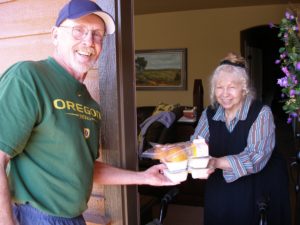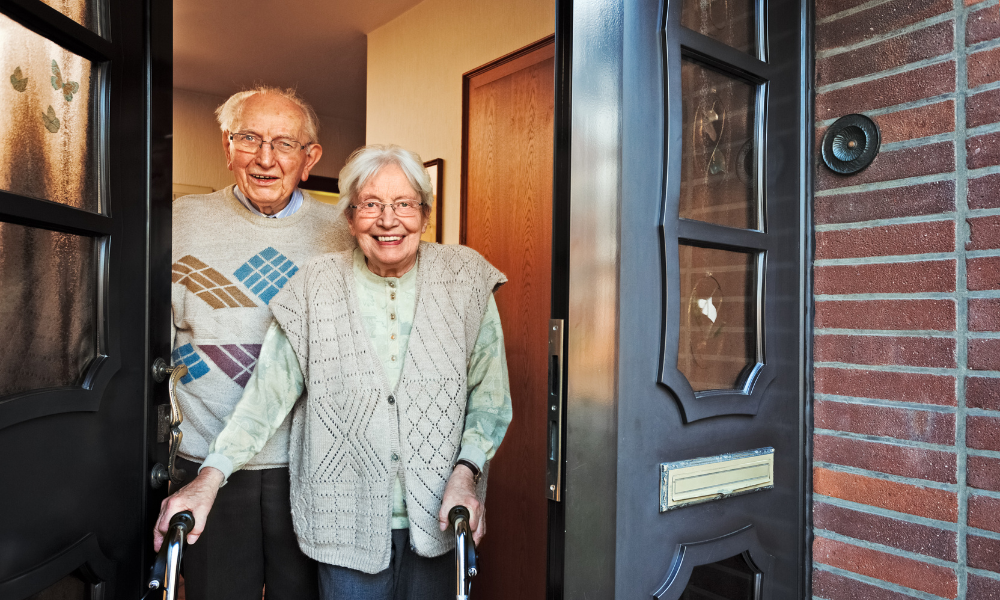The Council on Aging and our partners deliver Meals on Wheels to the most high-risk seniors throughout the tri-county. It’s the first and one of the most effective lines of defense in avoiding additional healthcare costs for older adults.
Each delivery comes with a safety check and an assessment of any changes that might impact a client’s quality of life. Generally, volunteers deliver meals between 10 a.m. and 12:30 p.m.

Meals on Wheels Eligibility
To be eligible, adults 60 and over must be homebound or need help shopping or cooking. During an initial home visit, our case managers assess eligibility for the Meals on Wheels program and may discuss other programs that may be helpful.



